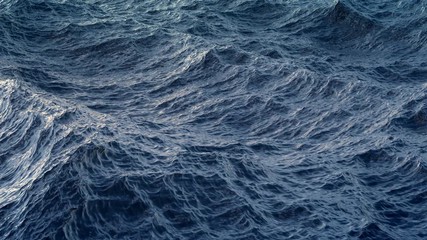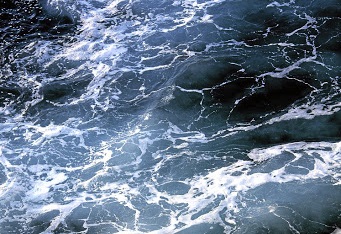SA cracks down on ship pollution amid suspected shipwreck oil spill off the West Coast
 The Panama-flagged cargo ship, MV Ultra Galaxy, ran aground off South Africa’s West Coast last year and is potentially the source of an oil spill in the region. (Photo: Kristin Engel)
By Kristin Engel | 09 Feb 2025
The Panama-flagged cargo ship, MV Ultra Galaxy, ran aground off South Africa’s West Coast last year and is potentially the source of an oil spill in the region. (Photo: Kristin Engel)
By Kristin Engel | 09 Feb 2025
Polluting ships across South Africa’s 1.5 million square kilometres of ocean now face stricter laws with fines of up to R10 million for ships in contravention of air and sewage pollution laws. But are South Africa’s maritime authority and stakeholders equipped to enforce the new rules?
_______________________________________________________________________________________________________________
President Cyril Ramaphosa has signed the Marine Pollution (Prevention of Pollution from Ships) Amendment Bill into law, strengthening South Africa’s ability to combat ship-related pollution.
The amendment incorporates global standards on sewage and air pollution from vessels, increasing fines and improving enforcement measures in South African law.
The legislation now means that South African authorities can ensure that ships flying the South African flag (wherever they are in the world) comply with international technical standards to prevent sewage and emissions of sulphur oxides and nitrous oxides.
It also means that foreign ships in South African waters must adhere to these standards.
South Africa is a signatory to several environmental treaties administered by the International Maritime Organisation (IMO), the most important being the International Convention for the Prevention of Pollution from Ships (Marpol).
Ultimately, the new legislation should now allow the country to enforce and meet more of its international maritime pollution prevention obligations.
In a statement by Ramaphosa on signing the Bill, he clarified that the Amendment Act incorporates Marpol’s Annex IV – regulating the activities for treatment and safe disposal of sewage from ships – and Annex VI – regarding ship energy-efficiency management and Greenhouse Gas emissions.
It expands the powers of the Minister of Transport to make regulations on the prevention of air and sewage pollution from ships, with the South African Maritime Safety Authority (Samsa) acting as the official enforcement authority.
The law increases fines from R500,000 to R10-million for serious offences.
Experts in the industry and Samsa believe this was long overdue as the previous fines were not much of a deterrent for internationally flagged ships.
Samsa spokesperson Tebogo Ramatjie described the previous fines as “a mere slap on the wrist for a foreign ship owner who operates in foreign currencies”.
Previously, Samsa was unable to hold foreign vessels liable for pollution and damage when in SA waters, now it can detain and prosecute any international ship in contravention of the law.
One potential case is the Panama-flagged MV Ultra Galaxy cargo vessel, which was wrecked on the West Coast last year and was this week suspected as the source of a recent oil spill on Strandfontein beach, with oiled seabirds now starting to surface.
The spill was detected south of the Ultra Galaxy, but it remains unclear whether the oil spill is connected to the grounded vessel.
Making the amendments operational
 The MV Ultra Galaxy was sailing along South Africa’s West Coast on the Atlantic Ocean and began to capsize during storms on 8 July 2024. Due to severe storms during the month, the ship has broken apart. (Photo: Ethan van Diemen)
The MV Ultra Galaxy was sailing along South Africa’s West Coast on the Atlantic Ocean and began to capsize during storms on 8 July 2024. Due to severe storms during the month, the ship has broken apart. (Photo: Ethan van Diemen)
“The signing into law of the Amendment Act is an important move towards South Africa fully adhering to its international environmental commitments and bringing South Africa’s regulation of maritime activities in line with globally agreed technical standards for preventing pollution caused by the maritime industry,” Nina Braude, a senior attorney at Biodiversity Law Centre (BLC), told Daily Maverick.
She said keeping pace with international efforts to prevent pollution of the marine environment is especially critical because of the inherent interconnectedness of the oceans.
Braude said the incorporation of Annex VI is particularly timely, given the global efforts to manage climate change and last year’s signing of the Climate Change Act into law.
Braude cautioned that the amendments are not yet operational. For this to happen (and for enforcement to be possible), the Minister of Transport needs to prepare the necessary regulations and the President needs to issue a proclamation saying that the amendments have commenced.
Ramatjie said that the Amendment Act provided Samsa with a better enforcement tool, especially under Port State Control functions when inspecting foreign ships.
Samsa acts on the “polluter pay” principle and is mandated to hold ship masters and ship owners accountable for any contraventions, which include detaining the ship and/or prosecuting the ship master and/or owner.
Although Samsa managed to still hold ship owners and masters accountable, Ramatjie said the previous fines did not serve as a deterrent.
Ramatjie added that in the past, oil spills and chemical discharges were inadequately addressed because of weaker legislation, as Samsa can only give effect to international conventions and their amendments if they are given effect in South Africa’s legislation.
Therefore, Samsa, had not been able to hold foreign vessels liable under Annex IV and VI of Marpol, as these annexes were not domesticated in South African law.
- We could not formally detain and/or prosecute the vessel master or owner for a contravention. With these annexes now included in the new Bill, Samsa will have the ability to detain and prosecute any international convention ship that contravenes any portion of the international convention,
Foreign convention vessels were still required to comply with the annexes, but Samsa could only act under Port State Control, inform the ship of the deficiency and give them instruction to repair the deficiency.
“We could not formally detain and/or prosecute the vessel master or owner for a contravention. With these annexes now included in the new Bill, Samsa will have the ability to detain and prosecute any international convention ship that contravenes any portion of the international convention,” Ramatjie said.
The new Amendment Act sets compliance standards for managing storage, operation and records onboard, including equipment compliance to prevent pollution from ships.
If a ship maintains and operates within these parameters, it will be able to prevent pollution from oil, noxious liquid substances, harmful substances, sewage, garbage and air emissions.
If a ship is found to contravene the Act, Ramatjie said the increase in the fine, from R500,000 to R10-million will act as a deterrence and Samsa will be able to hold ship owners and masters more accountable.
“Although South Africa has held persons accountable in the past, the limited fine served as a mere slap on the wrist for a foreign ship owner who operates in foreign currencies,” Ramatjie said.
There are also known cases where shipowners or operators escaped accountability for pollution because of legal loopholes in South Africa, Ramatjie told Daily Maverick.
Although it is relatively easy for Samsa to detain a ship and issue an Admission of Contravention, Ramatjie said it was difficult to prosecute any person through the court system by laying a criminal charge against the person due because of the slow legal process.
Implementation and enforcement challenges
The primary enforcement challenges of this law relate to Samsa’s capacity, suitable budget allocations and inter-agency/inter-government cooperation.
“Enforcement is an enormous job, and South Africa’s enforcement obligations in terms of Marpol, apply throughout its exclusive economic zone (approximately 1.5 million square km of ocean) as well as to the Prince Edward Islands,” Braude said.
This makes it crucial that Samsa expands and updates existing compliance and enforcement procedures, as the official enforcement body across this zone.
“Samsa has no aircraft, drones, patrol boats, or other mechanisms to detect and track pollution from ships in remote areas and is reliant on reports from other ships in the area,” Ramatjie said.
Many of the difficulties experienced by the authorities with ships going “dark” – turning off the systems that track their locations – will always be present in this space, and that is as true of the controls for sewage and air pollutants as it is of controls for hazardous substances, dumping at sea and illegal fishing, Braude said.
But Samsa does have a long-term goal to eventually procure and use long-range drones, aircraft and patrol boats to conduct maritime pollution patrols throughout the Exclusive Economic Zone.
Ramatjie said this will incrementally assist in protecting the marine environment, and the assets will be outfitted with equipment to identify various types of pollution and assist with gathering evidence. They will also be able to assist with search and rescue, therefore fulfilling a dual role.
Also important is that the process of implementation is not stalled by undue delays.
The amendment deals with adding types of pollution to an existing system of regulation and, therefore does not change the “how” of pollution enforcement, but rather the “what” of the pollution which is targeted, according to the BLC.
“We then need to ensure that the implementation of the Amendment Act by Samsa keeps the aim of the marine ecosystem and biodiversity protection front and centre when addressing the development and operation of South Africa’s maritime industry,” Braude said.
This could go a long way to securing the integrity of biodiversity and ensuring the operation of maritime activities in South Africa and internationally is ecologically sustainable. DM






